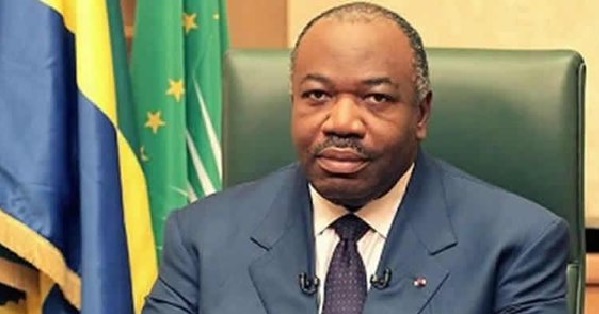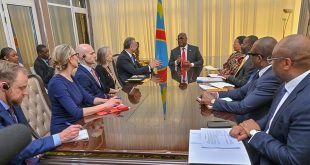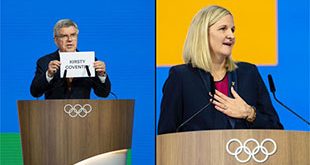
Libreville, Gabon | AFP | Since independence in 1960, Gabon has had only three presidents including a father and son from the Bongo family who between them have held power for more than five decades.
Here are highlights in the history of the small central African country.
– Leon M’Ba to Omar Bongo –
Gabon becomes independent from France in August 1960 and nationalist Leon M’Ba is elected president the following year.
He dies in 1967 and is succeeded by his deputy, Albert-Bernard Bongo, installed with the help of France.
Bongo sets up a one-party state, ruling with an iron fist and benefitting from oil exploitation.
He converts to Islam in 1973, changing his name to Omar Bongo.
As the sole candidate, he is elected president in 1973, 1979 and 1986.
A multi-party system is introduced after social unrest and riots in 1990 but Bongo nonetheless wins the elections in 1993, 1998 and 2005. Poll results are disputed or followed by unrest.
– From father to son –
Bongo dies from illness in June 2009 and, after a controversial election that August, one of his sons, Ali Bongo, is sworn in as president in a ceremony boycotted by the opposition.
Despite an opposition challenge, the constitutional court approves the election results but there is deadly post-poll violence.
The opposition slams Bongo’s “authoritarianism” and “autocratic leadership”.
Violent clashes in December 2014 pit opposition supporters against security forces during a banned demonstration to demand Bongo’s departure. The opposition says several people were killed.
– Birth dispute –
In 2014 Ali Bongo is plunged into a controversy triggered by a French journalist’s claim that his birth certificate is forged and he is originally Nigerian, adopted by Omar Bongo during the Biafra war in the late 1960s.
Vigorously denied, the scandal is used by Bongo’s opponents to dispute his eligibility for office. The dispute leads to legal proceedings in France and Gabon.
Before the August 2016 presidential election, the opposition again uses it — in vain — to call for the invalidation of Bongo’s candidacy.
– Post-election turmoil –
The 2016 vote takes place in a tense climate after strikes and with the regime battling budget problems amid plummeting oil prices.
Bongo’s main rival is opposition leader Jean Ping, a veteran diplomat who once headed the African Union Commission and held senior UN posts.
When the electoral commission announces Bongo has won, an unprecedented wave of post-election violence breaks out.
Hundreds are arrested, the national assembly is set ablaze and security forces storm Ping’s headquarters. Several people are killed.
In early September 2016, Ping proclaims himself “president-elect” but weeks later the constitutional court validates Bongo’s re-election.
The ruling party Gabonese Democratic Party (PDG) goes on to win a large parliamentary majority in long-delayed legislative polls in October 2018.
– Absent president –
Bongo falls ill in October while in Saudi Arabia to attend an economic forum and is transferred to Morocco for treatment.
The first official details about his illness are only released on December 9 when officials say he has suffered a stroke.
The lack of information and the president’s absence sparks speculation that Bongo is incapacitated or even dead, with the demise of his father in a clinic in Spain 10 years earlier also shrouded in secrecy.
Ali Bongo addresses his compatriots for the first time in a video message released on December 31 and recorded in Rabat in which he says he is “better” and was “preparing to meet you again soon.”
On January 7 renegade soldiers call on radio for the public to “rise up”, in an apparent coup bid profiting from Bongo’s absence.
The rebel chief is captured and two of his men killed.
On January 13 a new government is announced in a video message from Morocco, although it can only be sworn in before the president.
Two days later, Bongo flies home after a medical absence of more than two months.
 The Independent Uganda: You get the Truth we Pay the Price
The Independent Uganda: You get the Truth we Pay the Price



